

As we push towards the end of what has been a challenging year it’s easy to focus on finishing the crush and not on how we can start preparing for next year.
Soil Sampling Tips and How to take a GPS point on your smartphone.
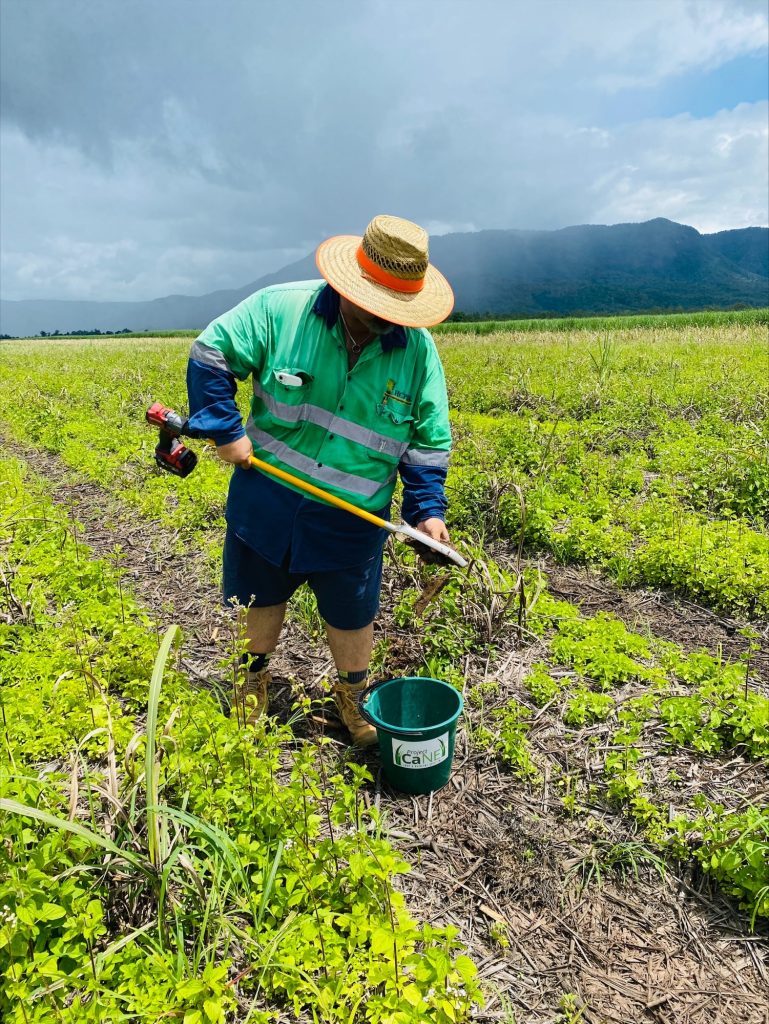
Soil sampling should be a vital part of every farms strategy to ensure our fallows are ready for next year’s planting and the subsequent crops.
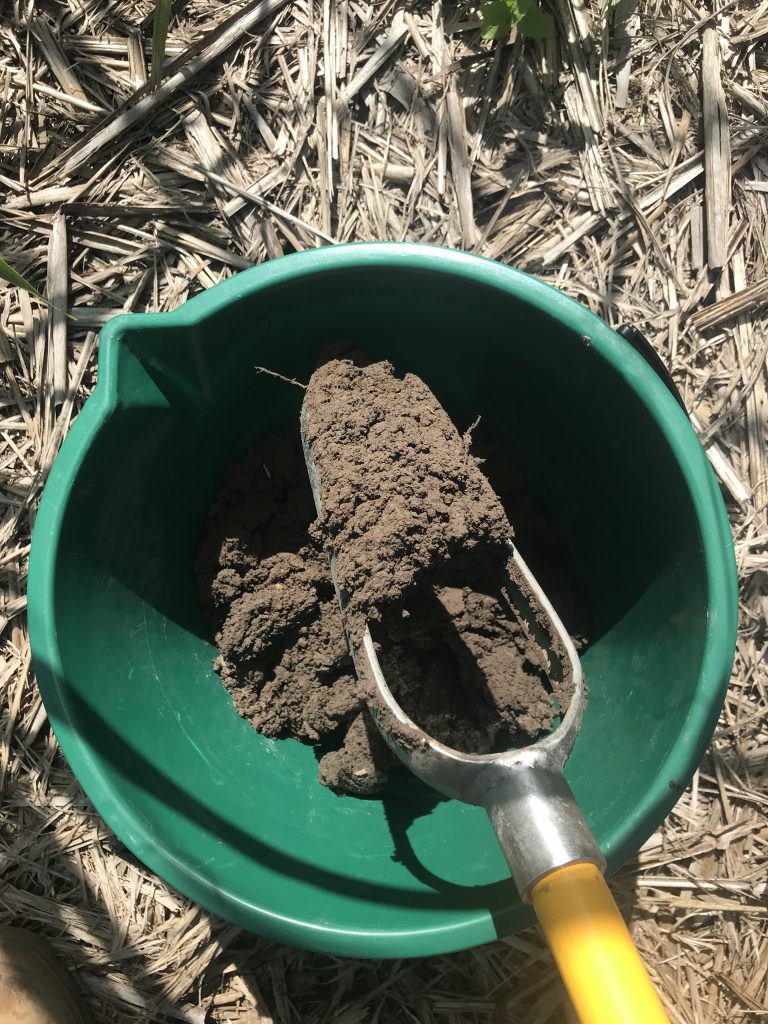
Here are a few simple tips to help you get the most from your soil sampling to ensure you get the best possible results of your soils nutrient status.
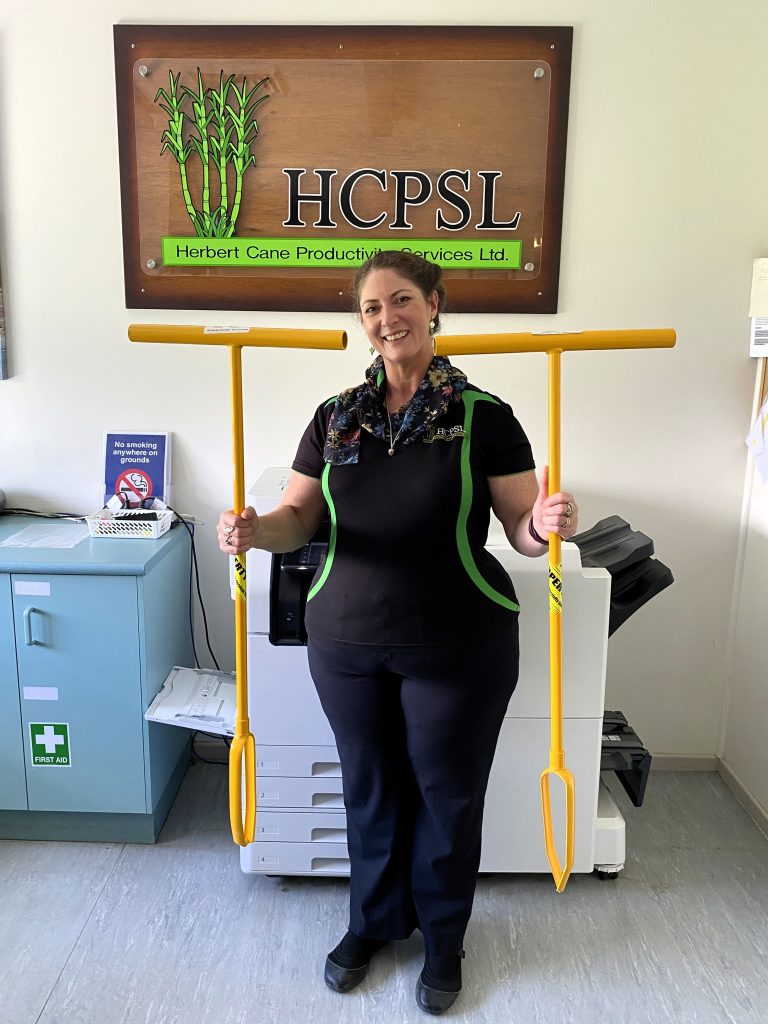
If you’d like to discuss any soil sampling related topics with one of our Extension Agronomist, or loan one of our soil sampling augers, call the HCPSL office on 47761808.
With the support of Project CaNE, funded by the partnership between the Australian Government’s Reef Trust and the Great Barrier Reef Foundation, HCPSL is offering Herbert growers the opportunity to receive free EM mapping. The Project CaNE EM mapping initiative is open to all Herbert sugarcane growers and will run until January 2025.
The initiative includes access to agronomic advice from Project CaNE Extension Agronomists and drone technology that will assist with the investigation and validation of crop management decisions based on EM mapping, soil testing and crop productivity constraints.
Growers seeking more information or wanting to register their interest in being involved in the EM mapping initiative should contact our HCPSL GIS officer Rod Nielson by calling the HCPSL office on 47761808.
The HCPSL base station network was established to support Herbert growers in setting up GPS guided systems on farm. We are always looking at ways we can improve the services we provide and are asking growers to fill in a short survey that will help us better understand the level of use of our base station network, and what GPS systems growers are now using.
The survey takes less than 2 mins to complete, and the information gathered is for HCPSL use only.
Please click on the link below or scan the QR code (right) to fill in the survey form before 31st July 2024.
GPS Survey Link – https://arcg.is/408z40

On Tuesday the 25th of July, HCPSL was on show with Herbert grower representatives attending a bus trip to HCPSL sites. Representatives from ACFA, AgForce, Herbert River CANEGROWERS and HCQR, as well as HCPSL Board members and staff, got to view firsthand the on-ground services and extension activities that HCPSL delivers to the Herbert cane industry.
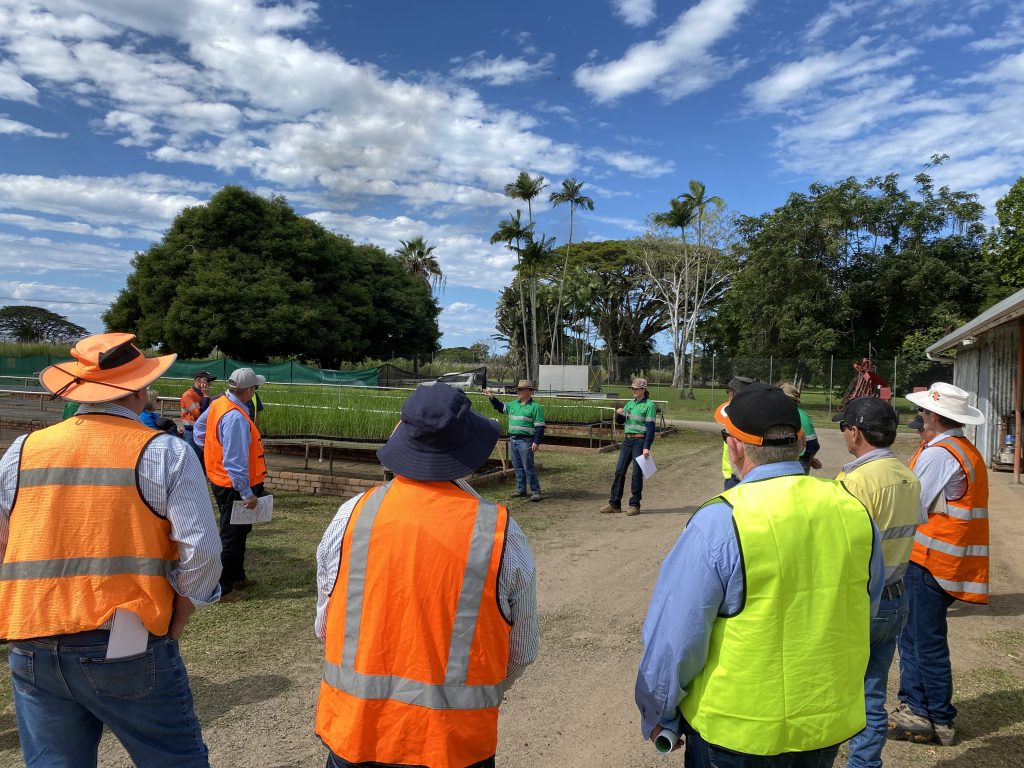
Photo above- Lawrence Di Bella (HCPSL Company Manager) and Rhiannan Harragon (HCPSL Field Agronomist) discussing Approved Seed cane options and tissue culture.
Grower representatives had presentations or viewed firsthand the following:
Rhiannan Harragon (HCPSL Field Agronomist) also presented data on the number of growers who requested RSD testing of seed cane for planting and the level of RSD infection. To date it was revealed that 69% of growers had not tested their seed cane prior to planting and that 9% of the samples tested were infected with RSD. The grower representatives all agreed it is very concerning growers were not testing their seed cane sources before planting and that there was a high level of RSD infection in growers seed cane. Growers are urged to purchase Approved Seed cane from HCPSL to curb the infection of RSD in commercial cane crops and to take advantage of the free seed cane inspection service HCPSL provides.
The day was very successful with Grower representatives leaving satisfied with the services being provided by HCPSL to their members.
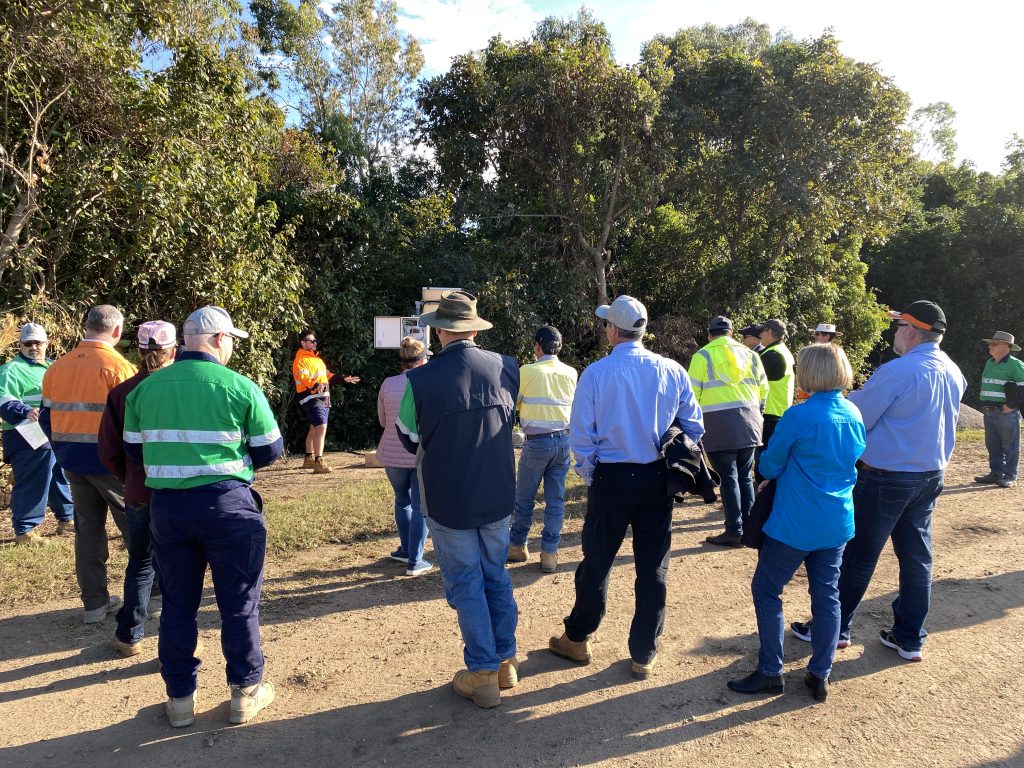
Photo above- Adam Royle (HCPSL Senior Extension Agronomist) and Luke Buono (JCU Tropwater Water Quality Technician) presenting to the delegates.
For more information on the services offered by HCPSL please refer to the company website- www.hcpsl.com or contact the Company Manager- Lawrence Di Bella.
Recently, HCPSL GIS Officer, Rod Nielson presented on the Hinchinbrook Community Feral Pig Management Program’s Project Squealer at the SRA Herbert Field Day. The field day featured various presentations and demonstrations from SRA technical staff and researchers, including – An overview of the Herbert Productivity Plan, Imidacloprid research, managing smut issues, and balancing nutrient inputs.
Rod from the HCPSL team, provided Herbert growers with insight into the technology currently being used for managing feral pigs under Project Squealer. Throughout the day Rod also chatted with Herbert farmers on the range of precision agriculture services HCPSL offers.
If you’d like to know more about precision ag, drones or GIS technology, please contact HCPSL on (07) 4776 1808 to speak with Rod.
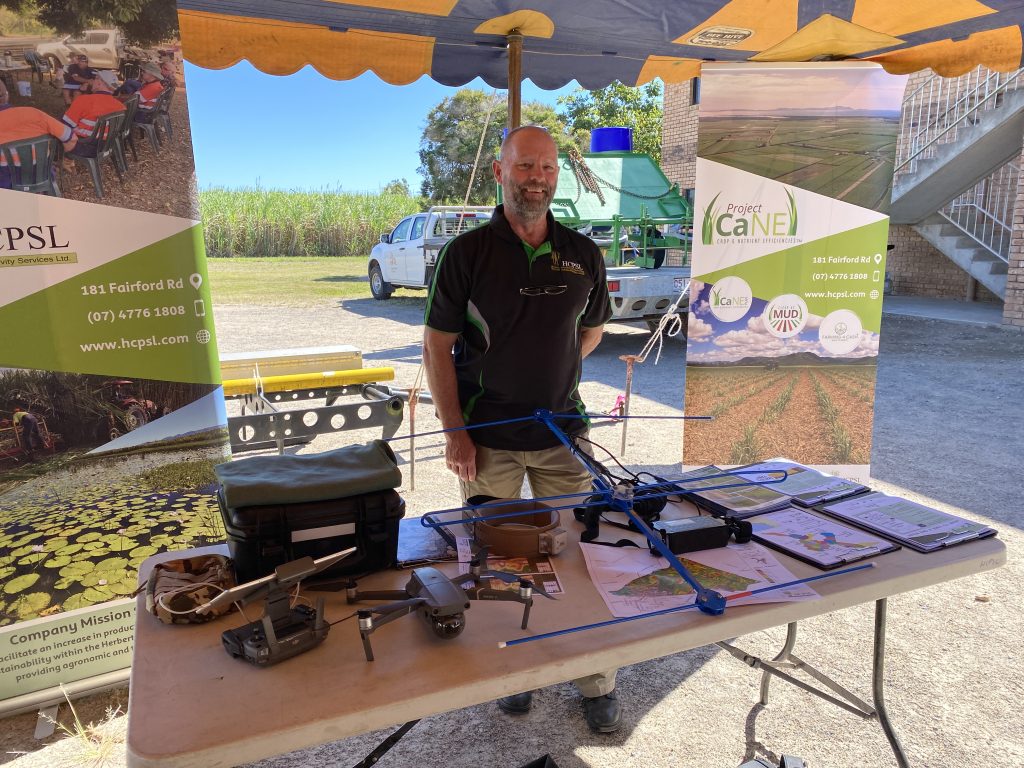
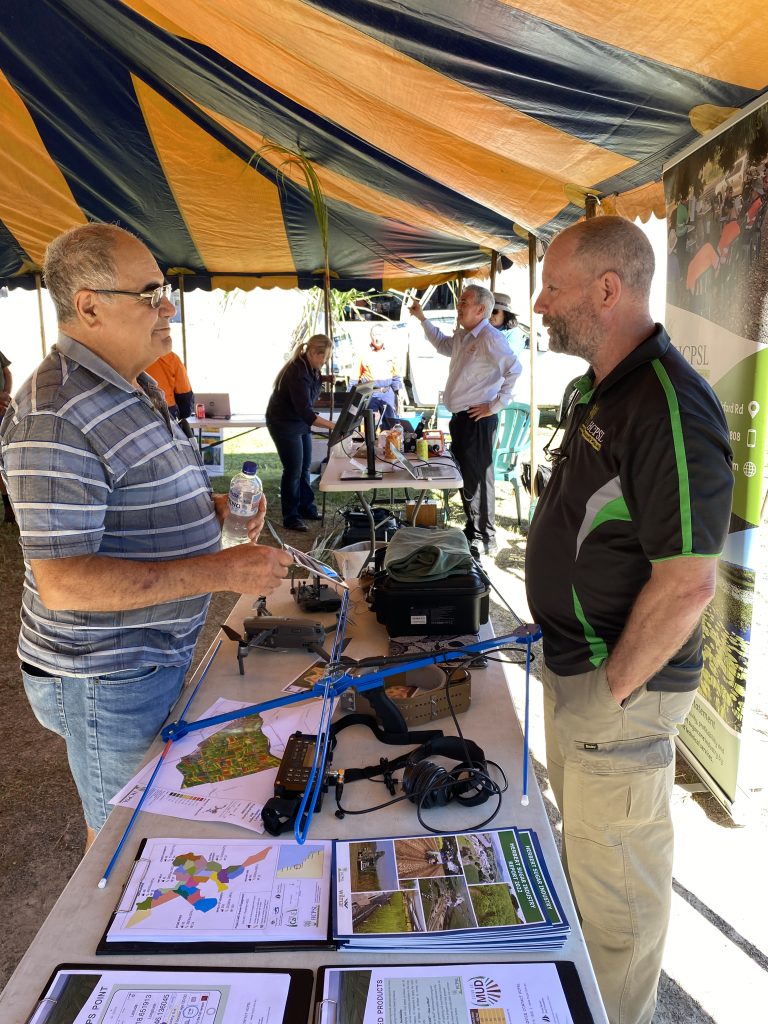
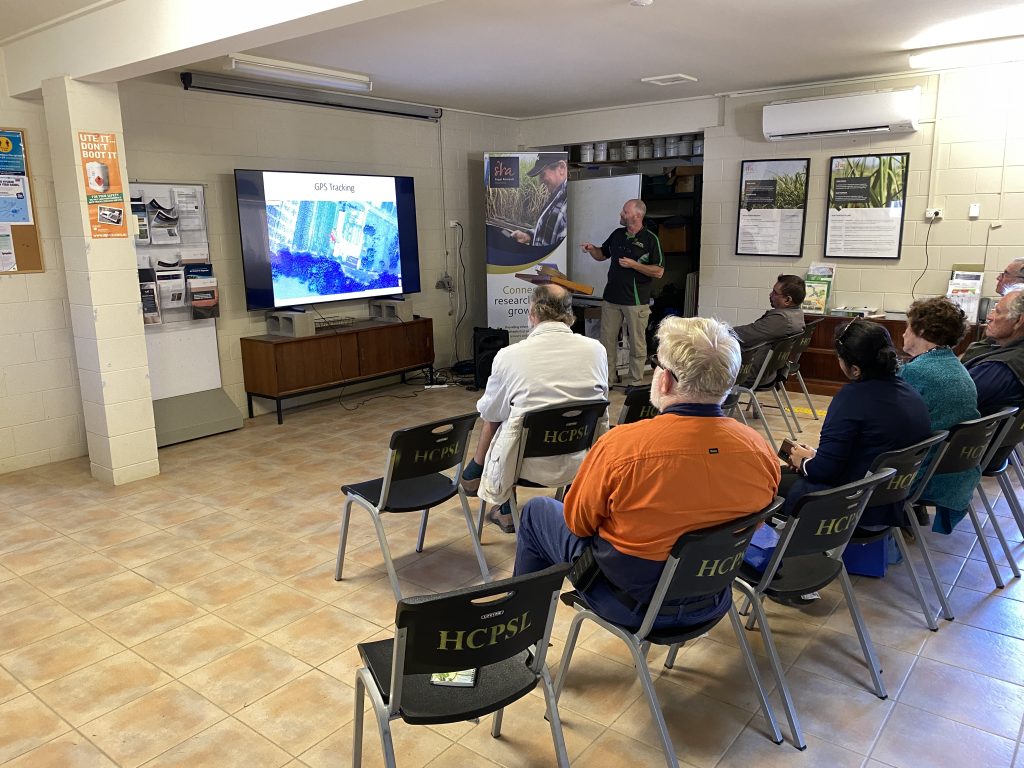
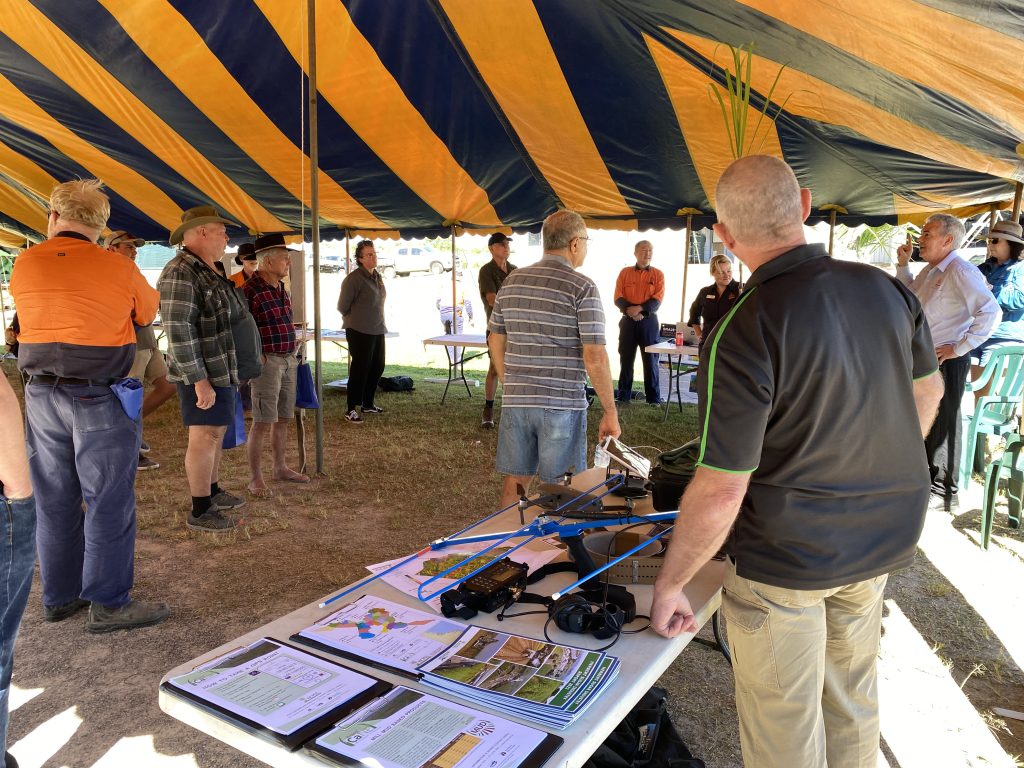
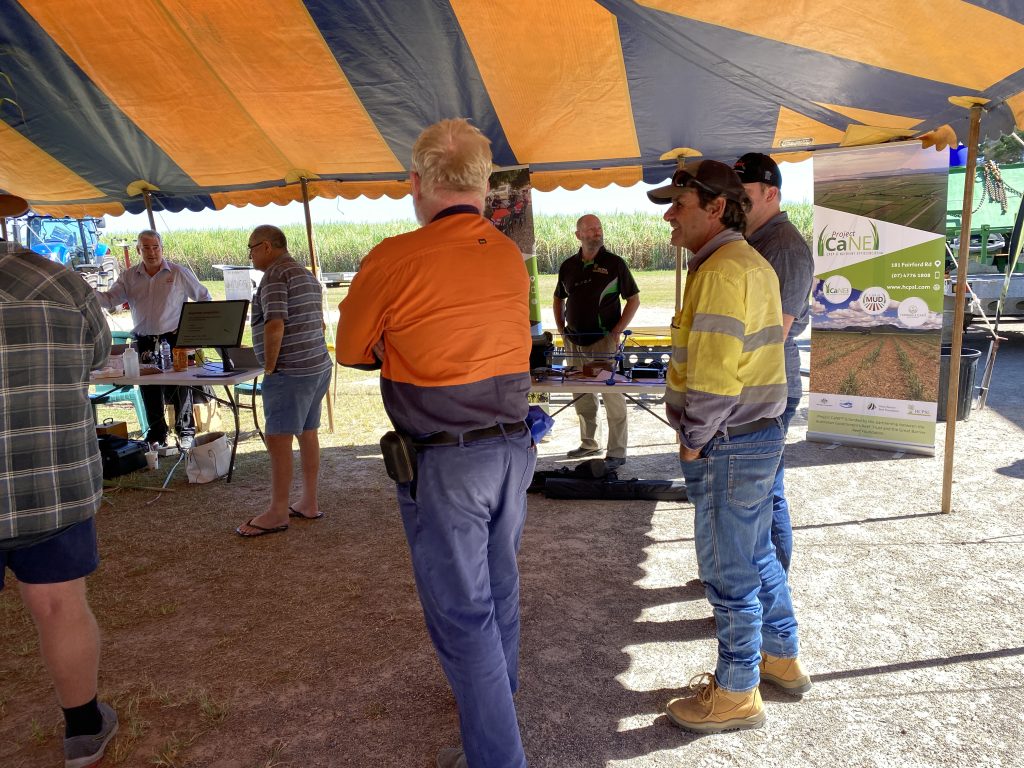
Recently, Rod Nielson from the HCPSL team captured these great photos of a spray drone in action!
The spray drone was used in fallow at the HCPSL Stone River seed plot to target volunteer cane. The seed plot site received over 1000mm since the beginning of January, hence the HCPSL team have been unable to access the block with a tractor to carrying out spraying.
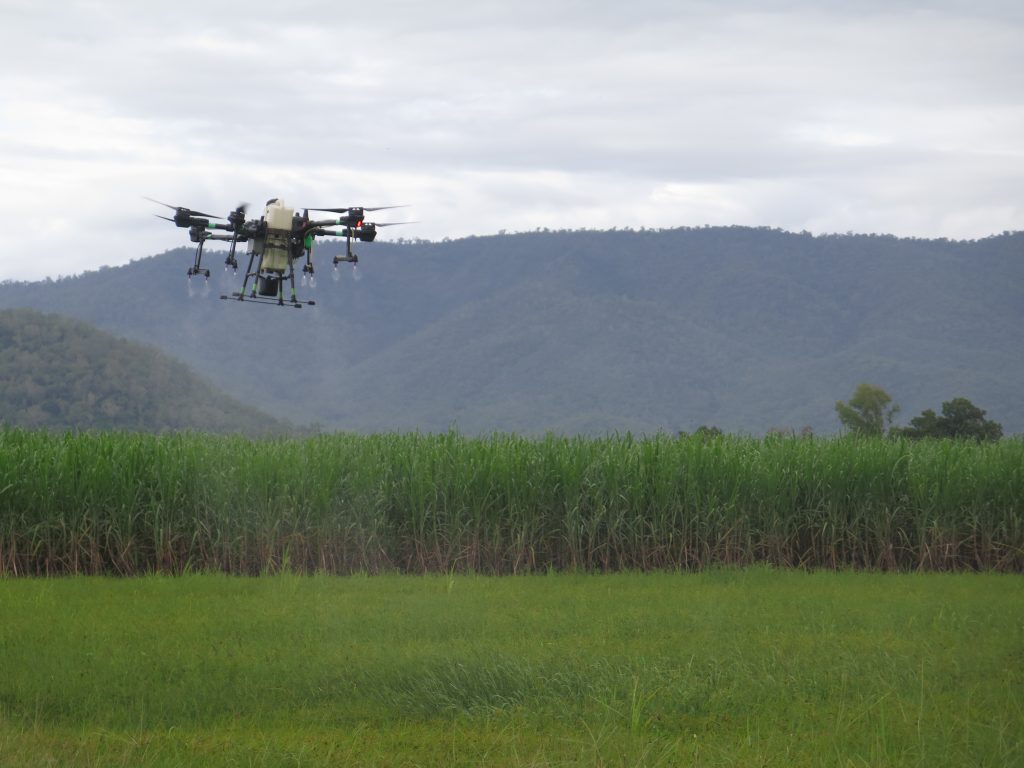
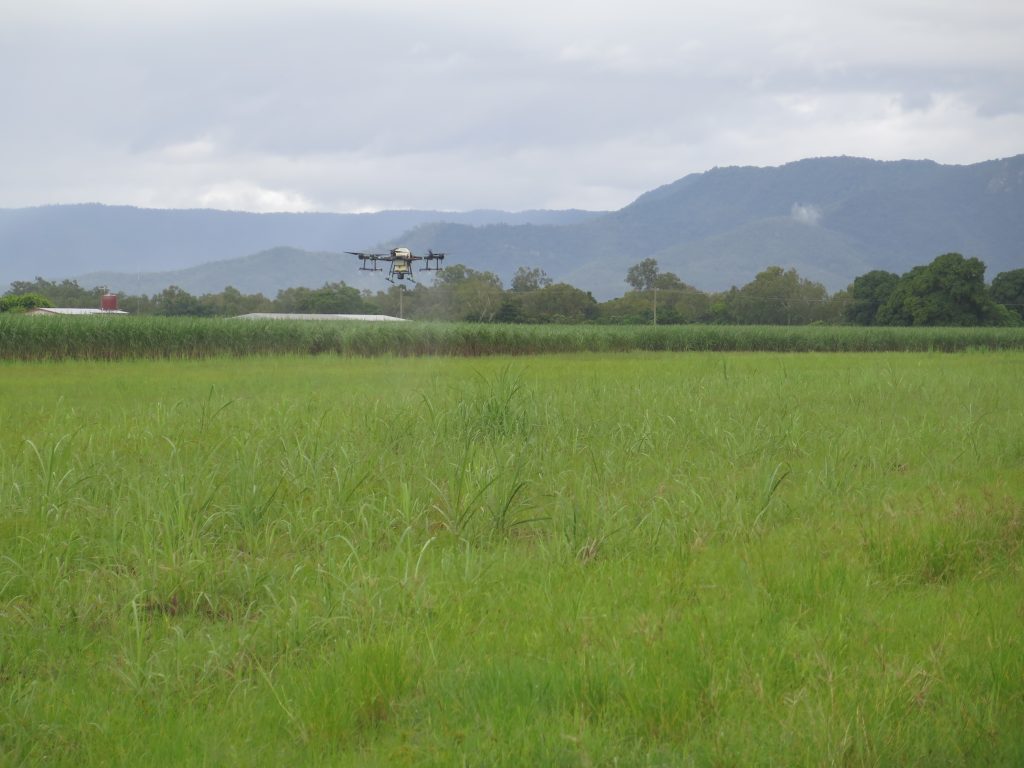
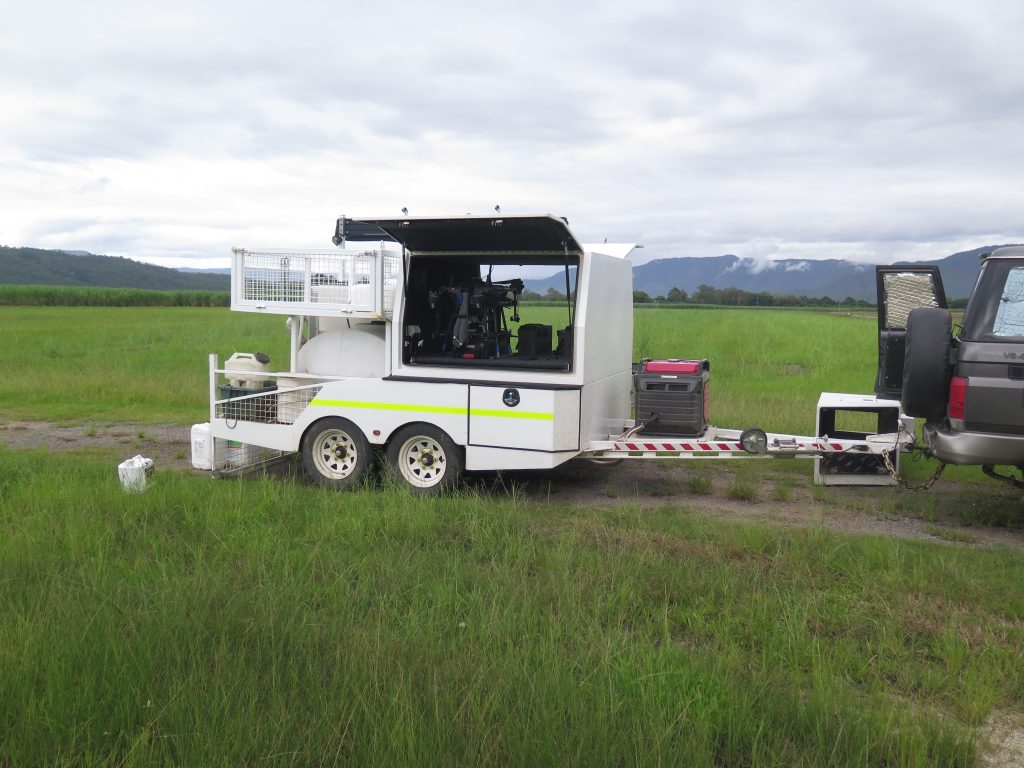
Due to the paddock conditions, size of the fallow area (<6ha) and the proximity to buildings, using a spray drone was a warranted management decision. The spray application was carried out by contractor, TravEarth Drone Services with a DJIAgras T20 with a 20Lt tank.
Utilizing this technology under appropriate circumstances, is a way Herbert growers can add another management tool to their ‘toolkit’.
If you’d like to learn more about drones or how they could assist management your farm, contact the team at HCPSL on (07) 4776 1808.
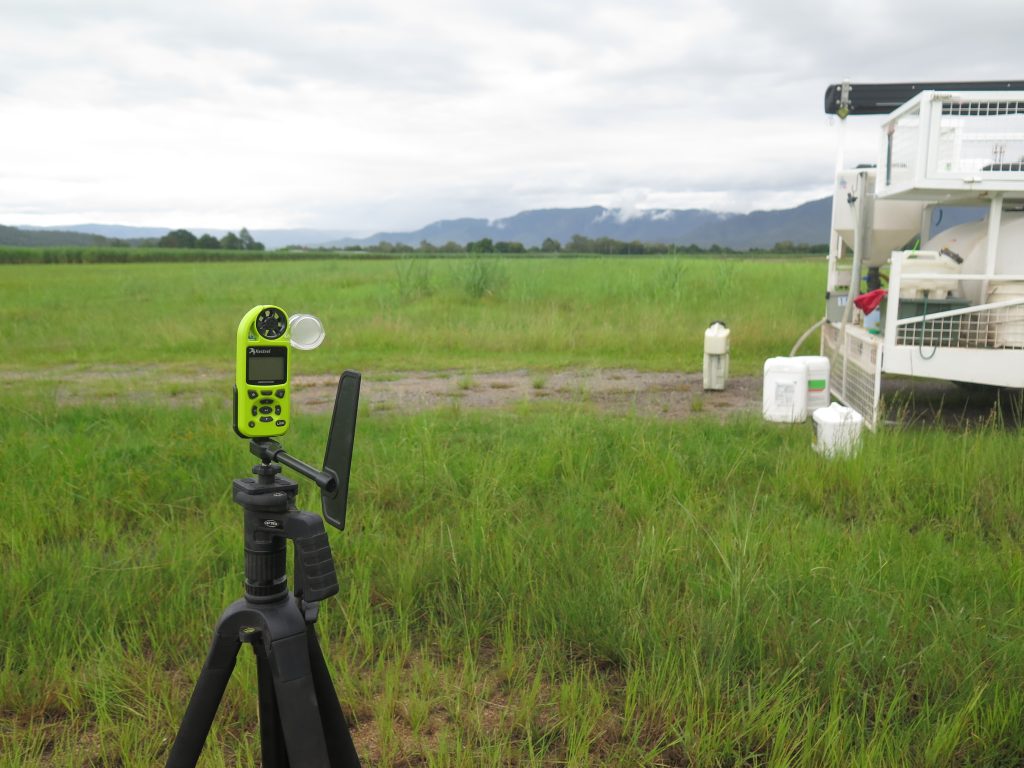
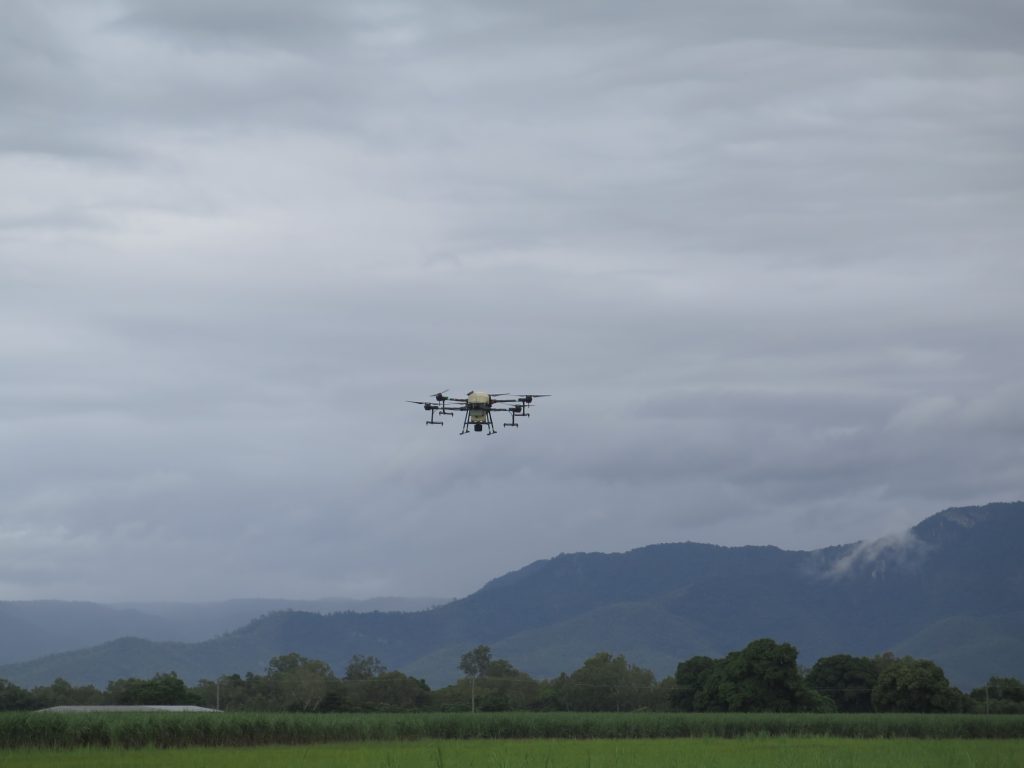
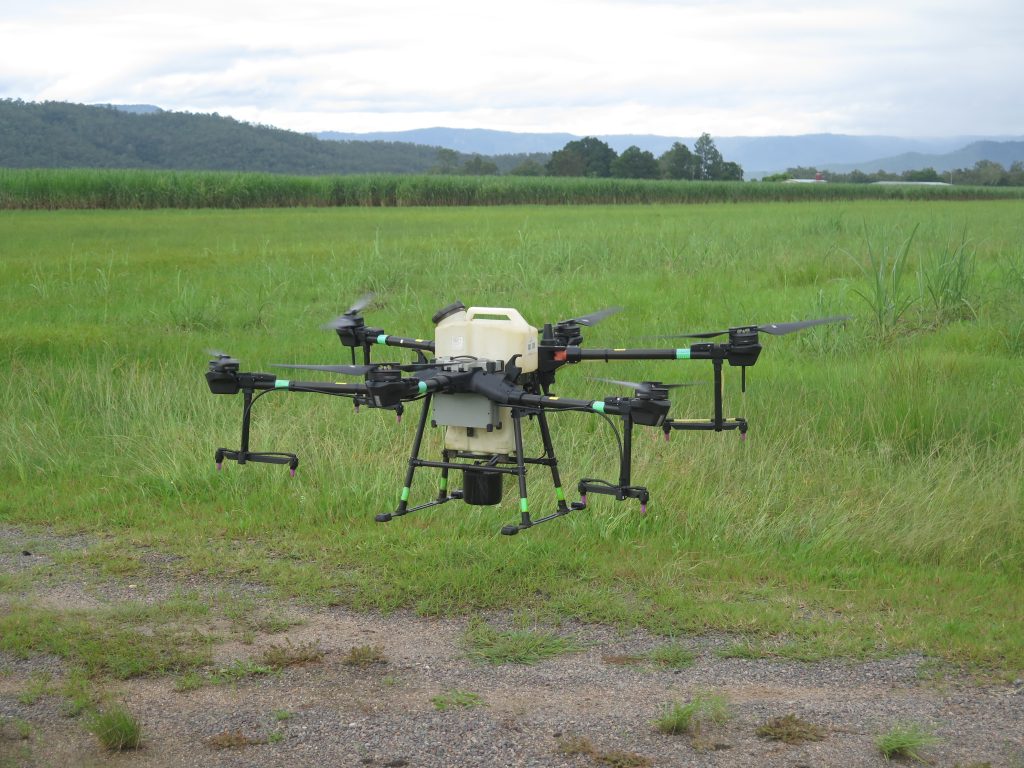
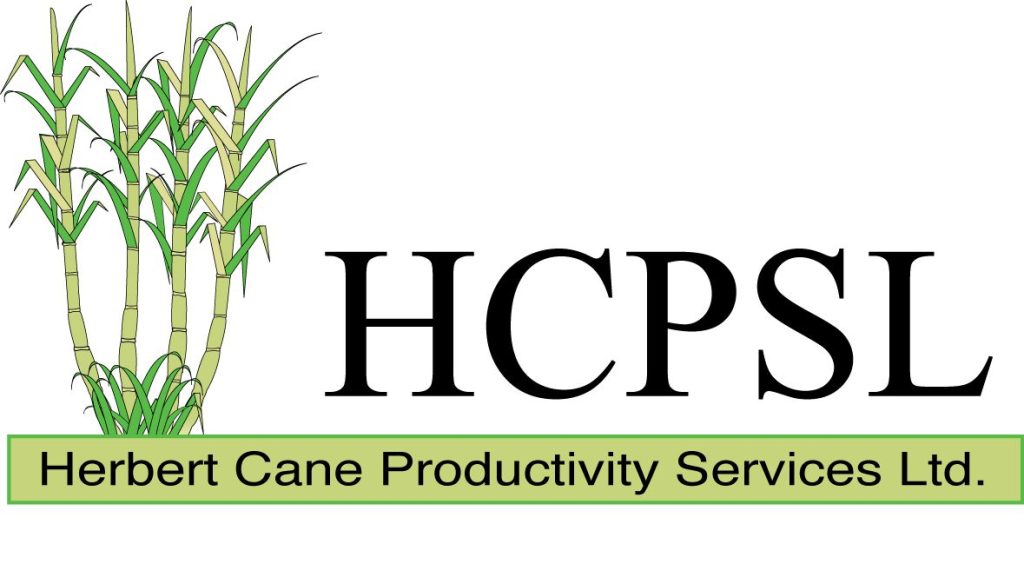
Date: Wednesday 15th March 2023
Commencing: 8am to 2pm
Location: HCPSL & SRA Office, 181 Fairford Road Ingham
For catering purposes, please RVSP to HCPSL on (07) 4776 1808
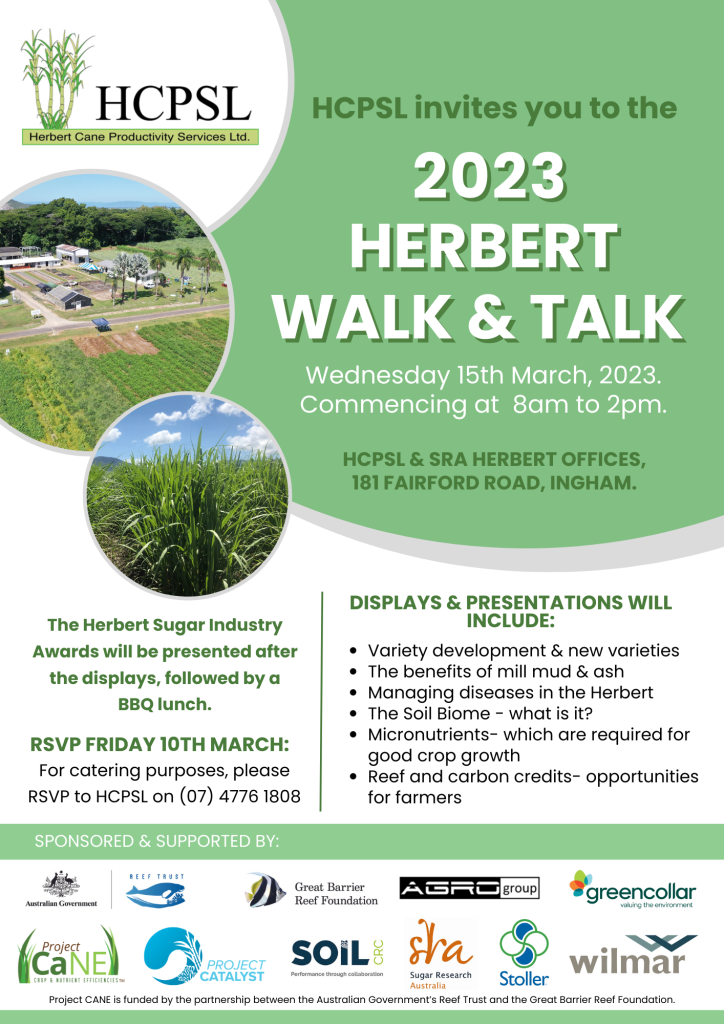
Last week, HCPSL and Burdekin Productivity Services (BPS) hosted productivity services groups from across the industry at the 2022 Combined Productivity Services Group Conference. Productivity groups from Mossman to Isis were in attendance. Over 60 industry agronomists and advisors visited the Herbert to explore news ideas, discuss issues, and share findings.
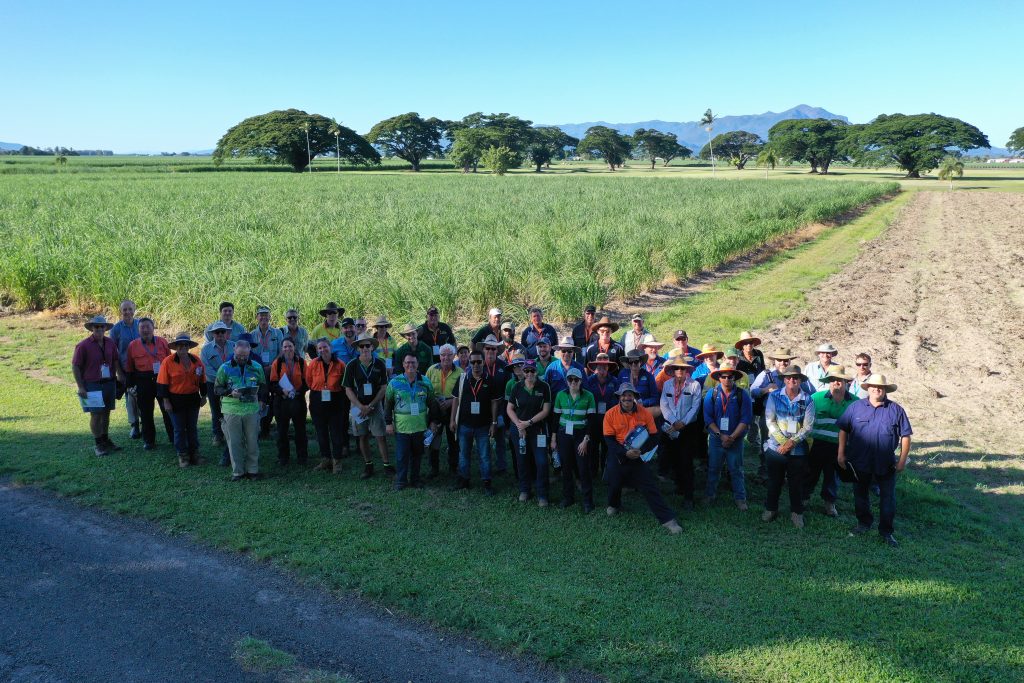
Over 2 days the groups focused on a range of topics, including – diseases, varieties, pests, technology, weeds, and nutrition. Throughout the conference, the groups discussed industry and district specific issues they faced.
Alike to the Herbert, delivering clean seed was a key triumph and core focus for many productivity groups. While RSD, pigs and rats were highlighted as common issues across various districts.
Initial presentations became the catalyst for extensive group discussion around methods for managing RSD and the effective delivery of clean seed. Conference participants then visited the Macknade site, where varieties were spotlighted. Presenters from across the industry explored the use of genomic selection, molecular markers and tissue culture.
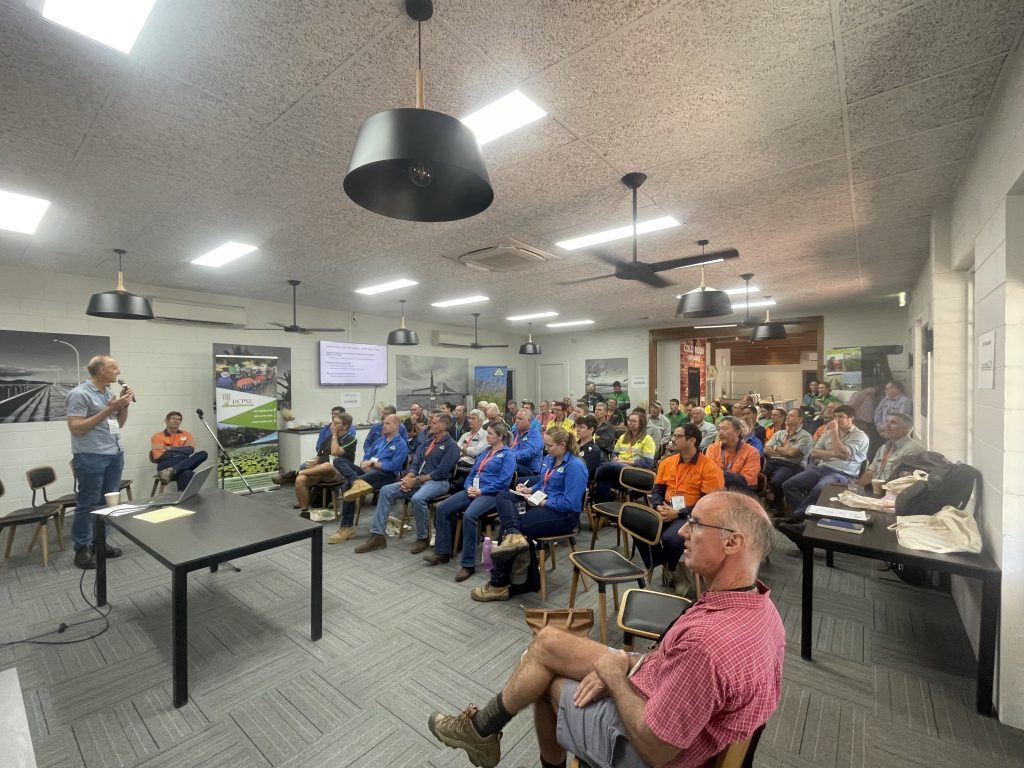
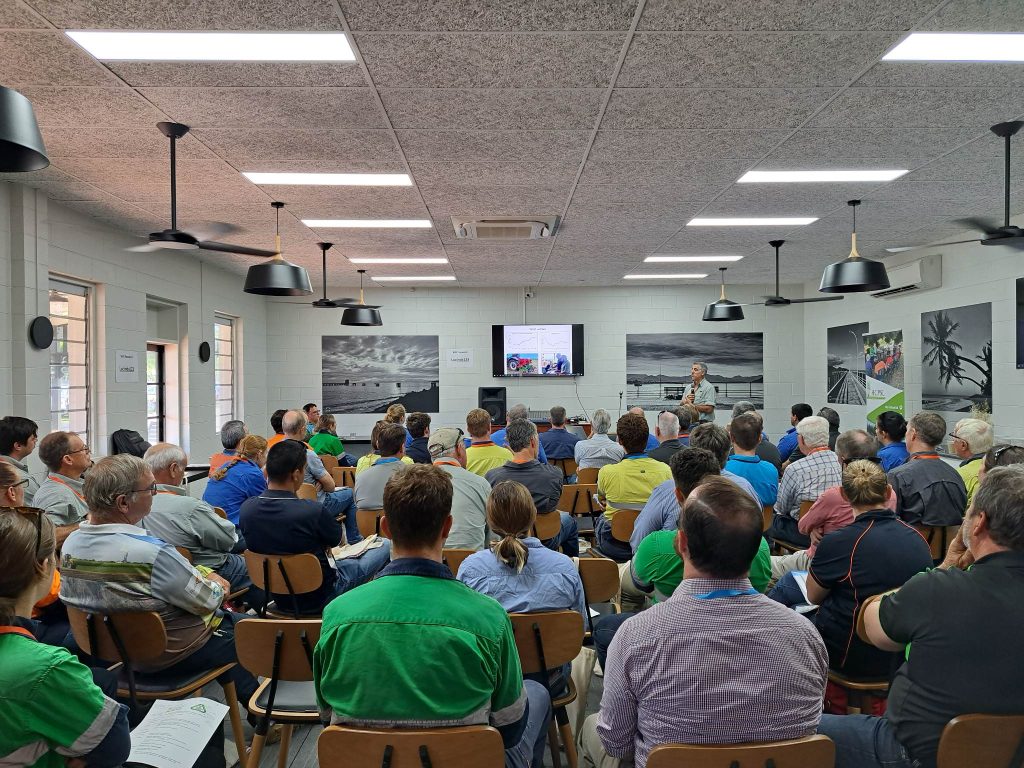
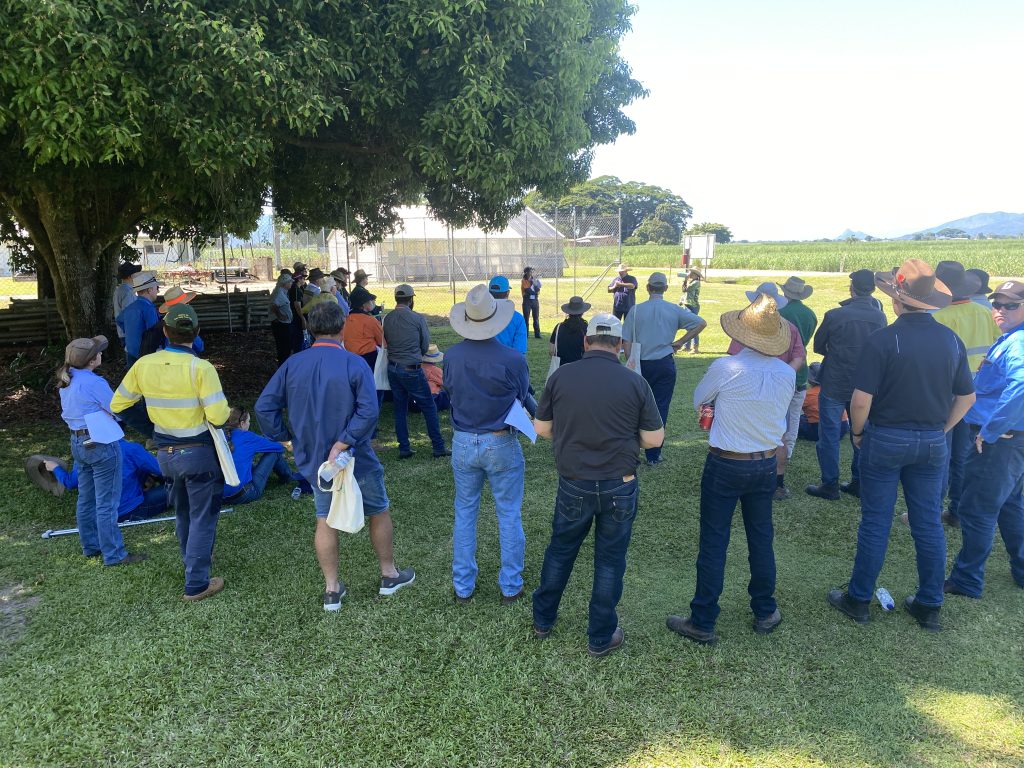
During Day 2 the management of 2,4-D drift, weeds and feral pigs was discussed by the groups. Finally, the benefits of nutrient management, soil sampling and soil health were explored in detail by presenters. Presentations highlighted the need for soil health in sustaining productivity. To conclude the conference, interested participants were invited to visit the HCPSL hot water tanks at Victoria Mill.
Presentations and discussions from across the 2 days proved widely beneficial for all in attendance. HCPSL thanks all productivity groups and industry professionals who attended the conference and shared knowledge, contributed ideas and engaged in robust discussions.
HCPSL would like to acknowledge the following Sponsors of the 2022 Combined Productivity Services Group Conference – Wilmar, Nufarm, SRA and Burdekin Productivity Services.
Herbert grower, Andrew Irvin explains how applying mud has been beneficial on his farm.
Interested to know if mill by-products have a fit on you farm?
Contact HCPSL on (07) 4776 1808 to speak to a Project CaNE Team member.
Visual storytelling: Kim Kleidon
Recent Comments